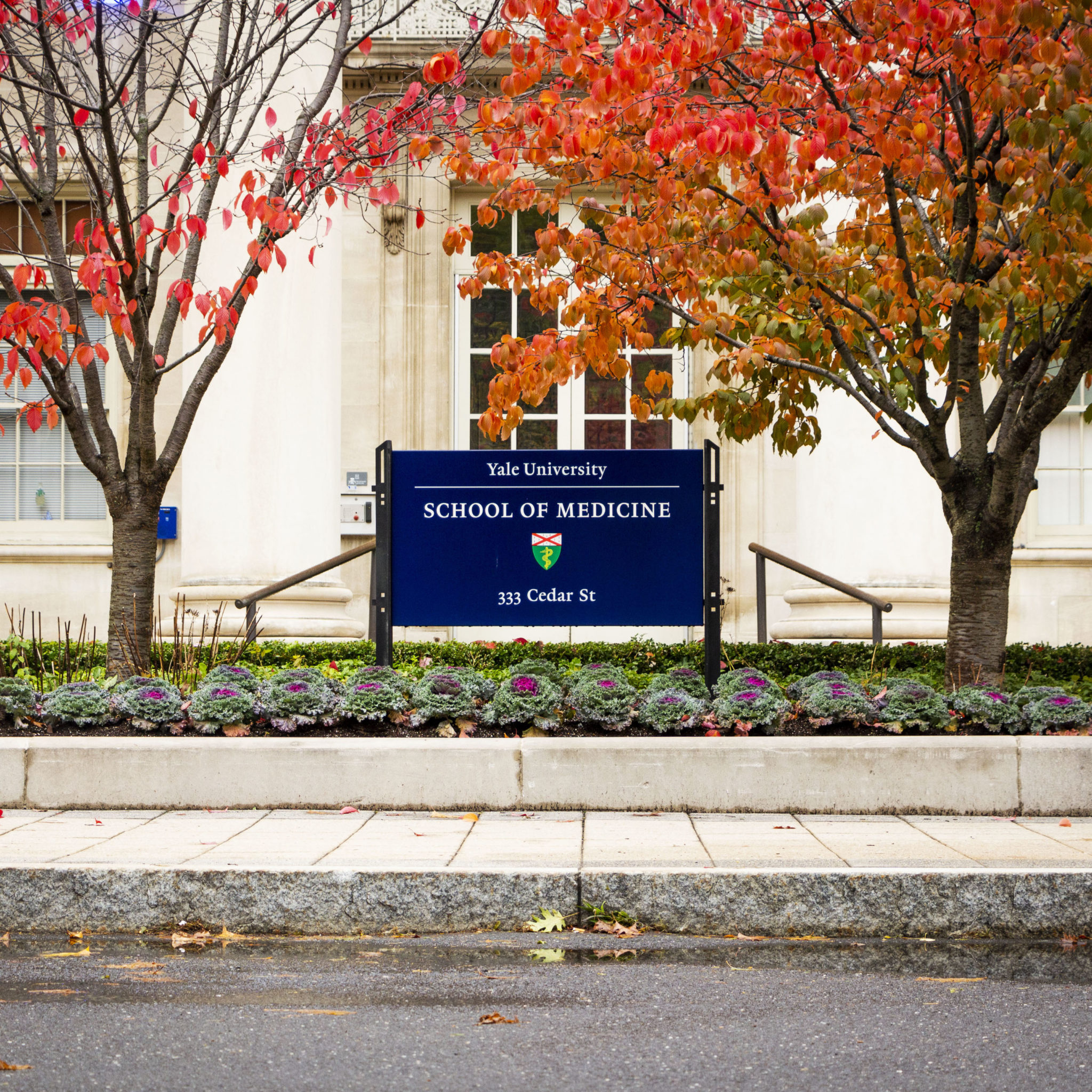
Marisa Peryer, Staff Photographer
Students and fellow professors at the Yale School of Medicine are mourning the death of Chief of Otolaryngology Clarence Sasaki MED ’66, who died on Feb. 4.
Serving for over 30 years as the chief of otolaryngology and the Charles W. Ohse professor emeritus of surgery, Sasaki was viewed as a forward-thinking, innovative researcher and inspiring mentor. According to David Kasle and Jordan Sukys, both residents and members of Sasaki’s Larynx Lab, Sasaki established key surgical procedures that “define” the field of otolaryngology, the medical study of head and neck conditions.
“Among many descriptions, an unassuming giant could aptly describe Dr. Sasaki,” Kasle and Sukys wrote in a joint statement to the News. “You wouldn’t know this gentle man described the first functional neck dissection or served as section chief for longer than most people’s entire working life, and that’s exactly how he liked it.”
Assistant professor of surgery Mark Bianchi MED ’91 said Sasaki was a demanding mentor who stimulated his students to push themselves throughout their time as residents — leading them to nickname him “The Boss.”
Both Bianchi and assistant professor at the School of Medicine Michael Lerner described Sasaki’s 6 a.m. morning rounds at Yale New Haven Hospital, often called “Sasaki Rounds,” during which he challenged residents and medical students to present the cases of admitted surgical patients in a concise and precise but also caring manner.
“These highly ritualized [rounds] would always be completed in formal dress with necktie and prior to his long day of head and neck cancer surgeries in the operating room,” Lerner told the News.
Kasle and Sukys wrote in their joint statement that one of the great pleasures of working with Sasaki on a daily basis were his personal anecdotes and smiles that brought joy to his mentees.
According to Bianchi, Sasaki’s fame and rigor were so impressive that residents joked that they could sense the atmosphere change when his plane landed after a trip out of town.
“I consider Clarence to be one of the founding surgeons,” Bianchi wrote in an email to the News. “He was very aggressive and in being so pushed back the boundaries of what we know and what we could do in the operating room.”
Associate research scientist Dimitra Vangeli first met Sasaki in 2013, when he interviewed her before she joined his lab. According to her, Sasaki has a powerful personality that influenced her deeply. Together, they studied laryngopharyngeal — or neck and throat — cancer and published 17 articles on the subject.
According to Vangeli, Sasaki strongly influenced his mentees’ scientific careers and introduced many of them to the field of otolaryngology. She described his passing as a “great loss” for the scientific community at large.
“Without doubt, his passion for research, his great spirit and his open mind to give opportunities to young researchers were the three characteristics of his big and forever personality,” Vangeli wrote in an email to the News.
According to Panagiotis Doukas, a postdoctoral associate at the School of Medicine, it was clear that Sasaki looked for mentees who were willing to work hard to achieve their goals. His inspiring personality led Doukas to join the Larynx Lab after his graduation in May of last year, after working on several projects with Sasaki during medical school.
Lerner explained that while Sasaki’s clinical and operative abilities led to his national renown, his career in research also contributed to his legacy. One of Sasaki’s main research focuses was the larynx and the field of neurolaryngology — the study of neurologic disorders of the larynx and pharynx — of which he is considered a pioneer.
“For many decades, Dr. Sasaki’s name was synonymous with Yale laryngology,” Lerner said. “He was a staple of this section for many years. When you were in his presence you knew you were in the presence of greatness.”
According to Lerner, Sasaki is said to have practically established the head and neck cancer program at the School of Medicine, and he encouraged collaboration with other departments there, which he modeled in his own research.
Lerner explained that after he retired from his clinical practice, he dedicated more of his time to his Yale Larynx Laboratory and to studying the neurophysiology of the organ.
“I will always remember his energy in our lab meetings and especially his thumbs-up and ‘good job!’ in our last meeting,” Doukas wrote in an email to the News. “I am sure his generosity and encouragement to young scientists that seek to make a difference has been and will always be honored.”
Sasaki was a fellow of the American College of Surgeons and won more than 12 awards throughout his career.
Beatriz Horta | beatriz.horta@yale.edu
Correction, Feb. 25: Vangeli is an associate research scientist, not an assistant research scientist. The story has been updated.







